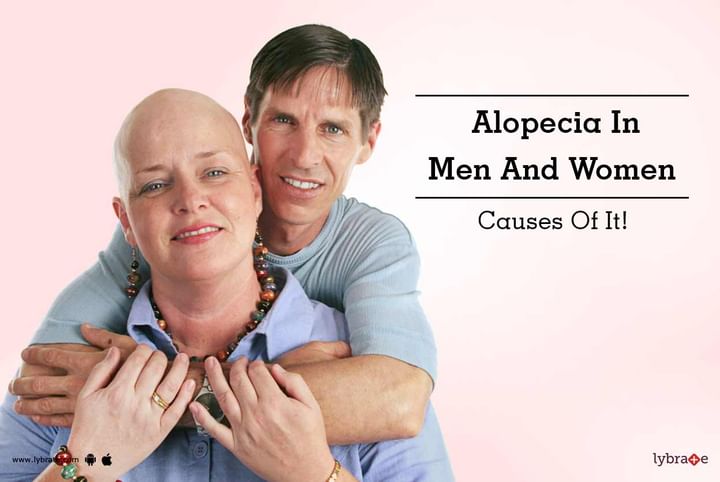Alopecia In Men And Women - Causes Of It!
Hair fall is not a problem as long as it is within the healthy range. In fact, as part of a normal cycle of hair growth, a person loses between 50- 100 strands of hair per day. The problem arises when the daily hair fall is more than 200 with little or no hair growth. In some cases, the hair growth may be slower than usual. All these factors may trigger thinning of the scalp, a condition commonly known as Alopecia. In some cases, the situation gets so bad that it results in baldness (both in males and females).
Alopecia can be of two types:
- Scarring Alopecia: Here, chances of a hair regrowth is next to impossible as scarring alopecia results in complete destruction of the hair follicles.
- Non-Scarring Alopecia: This is less severe with a strong possibility of hair regrowth as non-scarring alopecia does not destroy the hair follicles.
What triggers severe hair fall or Alopecia in men and women?
Hair fall or Alopecia is no longer a problem associated with old age (Diffuse Alopecia). Young adults (both men and women), in their mid 20's and 30's are suffering from Alopecia. While there may be many factors responsible for alopecia, some of the common and critical triggers are
- Genetics and hereditary: In some people, Alopecia may be more of a genetic and hereditary problem, a condition that is medically known as Androgenic Alopecia. Androgenic Alopecia can affect all and sundry, irrespective of their age and sex. Androgenic alopecia in males is known as Male Pattern Baldness and in females as Female Pattern Baldness. While the hair fall is rapid and severe, the hair growth is slow. In some cases, the hair follicles cease to grow beyond a certain length, resulting in short hair.
- Pregnancy: Many women suffer from a type of alopecia called Telogen Effluvium during their pregnancy. The condition is often a reversible and temporary problem that improves with time. Hormonal changes, stress, fatigue, insomnia and related pregnancy woes may trigger the severe hair fall during pregnancy. Some women also suffer from postpartum hair fall. The trigger here can be an imbalance in the estrogen level, the use of birth control pills, or even stress.
- Hormonal Imbalance: Hormonal imbalance can wreak havoc, giving rise to serious health complications with alopecia being one of them. Androgen (male sex hormone) is one such hormone whose imbalance can trigger Alopecia. The elevated levels of Androgen in the hair follicles are known to inhibit the hair growth. Hair loss can also be an outcome of Estrogen (female sex hormone) deficiency. Some women who had their menopause are likely to suffer from Alopecia.
- Certain medical conditions such as Alopecia Areata (an Autoimmune disorder that triggers sudden and rapid hair fall with the appearance of bald patches on the scalp), Scalp infections, Dermatological problems ( Lichen Planus, Sarcoidosis), PCOS, Thyroid problems, to name a few, are often responsible for severe hair fall.
- Some other factors that may result in alopecia include, excessive use of hair styling products, rapid weight loss, surgery, trauma, or a person undergoing radiation therapy.
In case you have a concern or query you can always consult an expert & get answers to your questions!



+1.svg)
